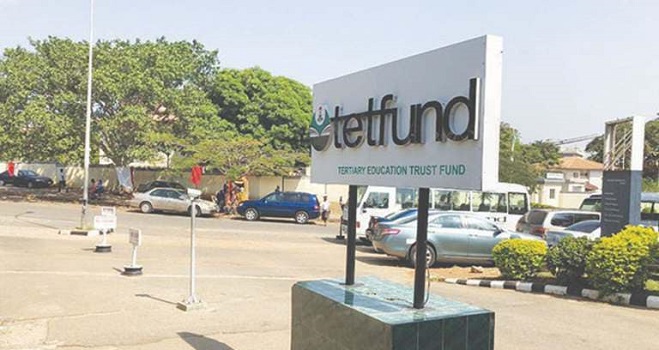 The Tertiary Education Trust Fund (TETFund) has announced the suspension of foreign scholarship funding for Nigerian academics under its TETFund Scholarship for Academic Staff (TSAS) scheme, effective January 1, 2025.
The Tertiary Education Trust Fund (TETFund) has announced the suspension of foreign scholarship funding for Nigerian academics under its TETFund Scholarship for Academic Staff (TSAS) scheme, effective January 1, 2025.
In a statement released Thursday by its spokesperson, Abdulmumin Oniyangi, TETFund cited the “excessive cost” of training abroad and the “high rate of abscondment by scholars” as reasons for the decision.
The suspension, approved by the agency’s board of trustees, will not affect scholars already enrolled in foreign institutions, who will continue to receive funding until the conclusion of their programs.
“This measure is expected to reduce pressure on foreign exchange, enhance local capacity development, and increase the number of beneficiaries within Nigerian tertiary institutions,” Mr. Oniyangi said.
TETFund also attributed some of the challenges faced by scholars to the failure of parent institutions to adhere to guidelines. The Fund stated that since 2019, it has paid tuition fees directly to foreign institutions to shield scholars from fluctuations in foreign exchange rates. Additionally, living expenses are disbursed to parent institutions with instructions to maintain the funds in domiciliary accounts.
However, non-compliance by some institutions, which kept funds in local currency, has left scholars vulnerable to forex volatility, TETFund noted.
“It is pertinent to state that despite the requirement of operating domiciliary accounts, some beneficiary institutions still kept such funds in local currency, leading to avoidable financial challenges for scholars,” the statement read.
To address the challenges and promote local capacity, TETFund is collaborating with the National Universities Commission (NUC) to implement transnational education guidelines approved by President Bola Tinubu.
Under this scheme, top-ranking international universities from countries like the UK, the USA, Malaysia, and Brazil will partner with Nigerian institutions to deliver high-quality programs locally.
“TETFund has advised beneficiary institutions to prioritize their training needs within Nigeria and strictly comply with guidelines for implementing the transnational education initiative,” Oniyangi added.

President Tinubu Set To Depart For Two-Week Working Visit To Paris
Tinubu Reconstitutes NNPC Board, Appoints New Leadership
DSS Arrests Two Key Suspects In Edo Traveller Killings
NNPC Ltd Enters Final Stages Of Preparation For Public Listing